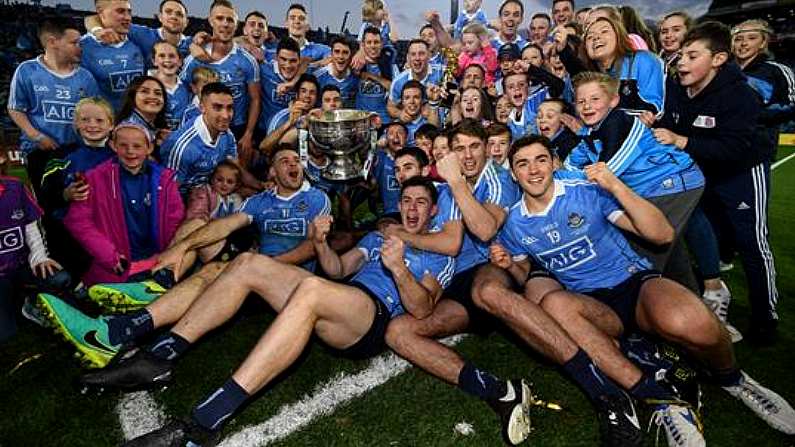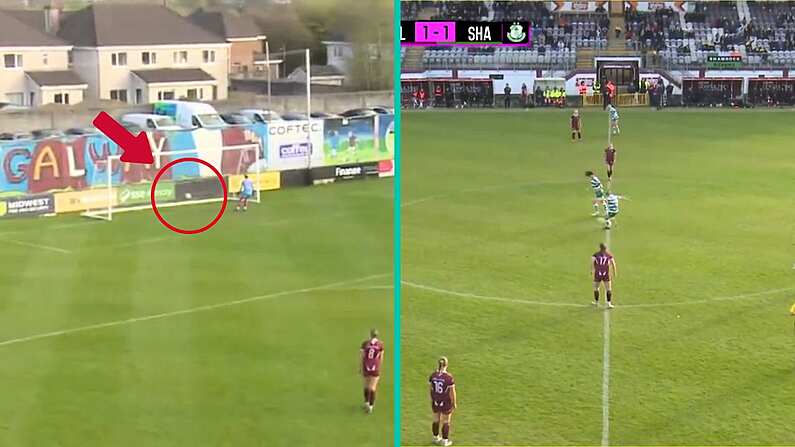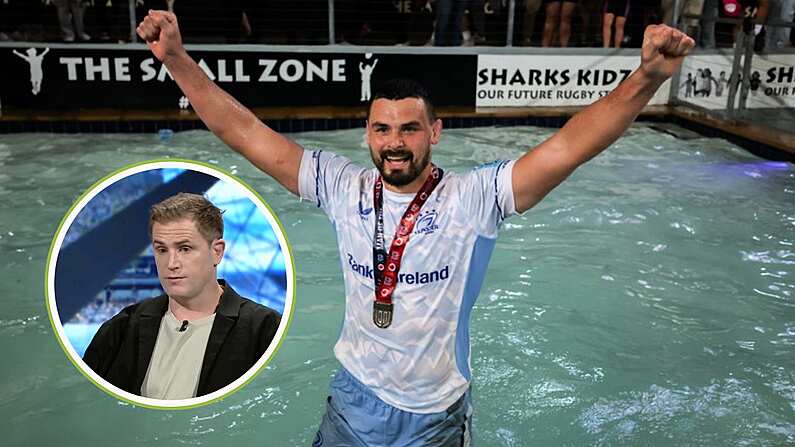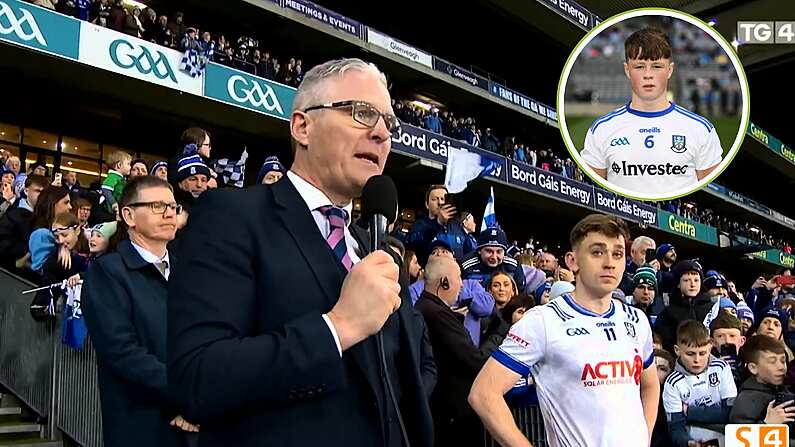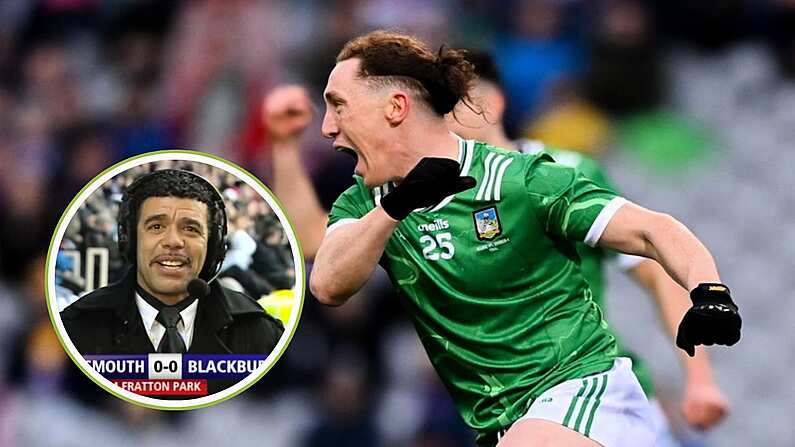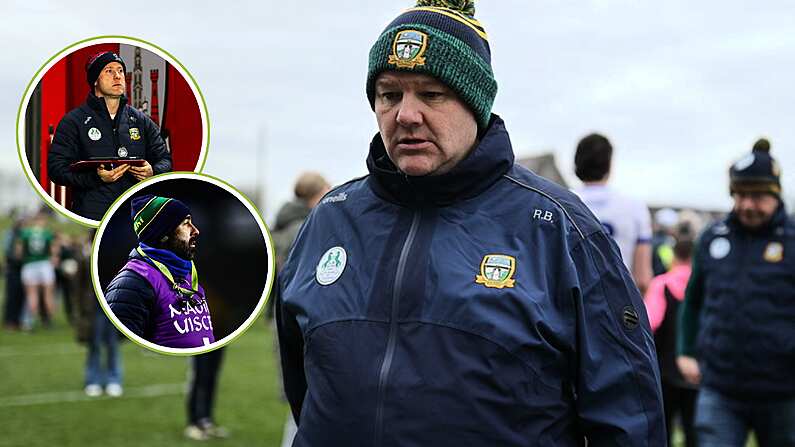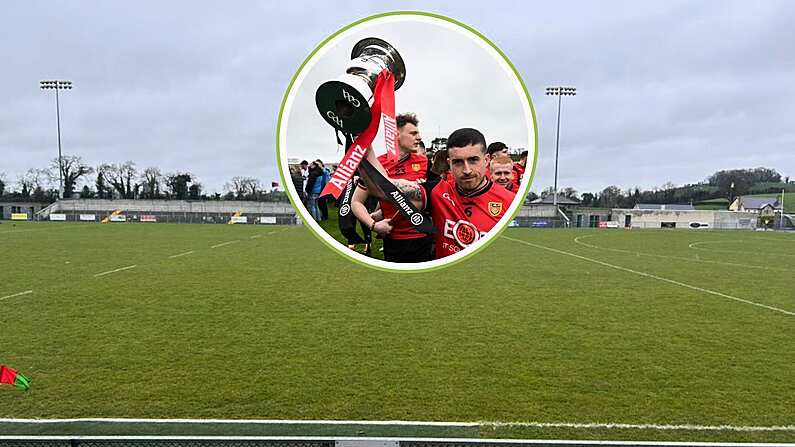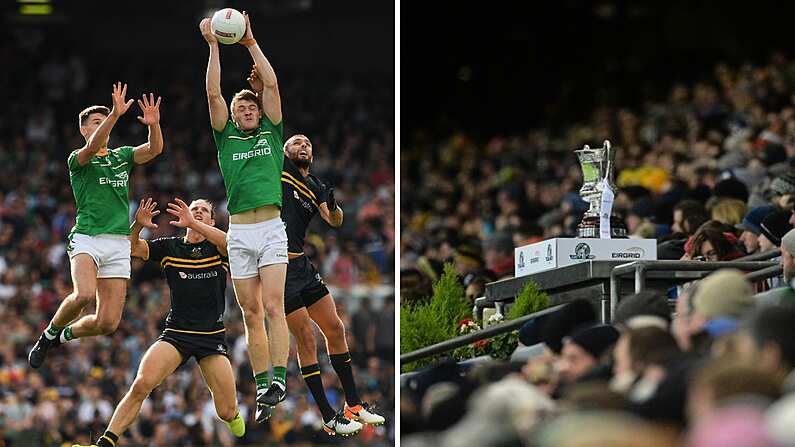When Cormac Costello (22 years old) came on for Kevin McManamon (31) in the fifty-fifth minute of the All-Ireland football final replay against Mayo at Croke Park and almost immediately kicked two points, a shiver went down the spines of every county outside Dublin. It was almost a symbolic five minutes. One of Dublin's greatest players over the past few years and an integral part of their All-Ireland successes in that period had barely broken the seal on his post-match Lucozade by the time his heir was laying waste to the opposition's defence. The message? This Dublin team isn't going anywhere.
Average age statistics can be slightly misleading. The average age of Dublin's starting team against Mayo on Saturday was 27 while Mayo's was 26. The average age of Tyrone's starting team against Mayo in the quarter-final was approaching 26. Against Dublin in the last eight, Donegal hovered around the 27 mark. The youthful Tipperary team from their semi-final against Mayo averaged 24-25 years of age, while the comparatively geriatric Kerry side creaked in closer to 29 when they took on Dublin.
Is this an old Dublin team?
Based on all of that, Dublin are actually the second oldest team out of the six sides we might consider the top All-Ireland contenders based on this year. But this belies their true strength in depth. Stephen Cluxton looks destined to carry on bringing up the average age of the side at 35 but if we look at some of the other key players in their All-Ireland victory we can appreciate the fairly remarkable and relatively seamless transition that has occurred in recent years with Dublin.
Dean Rock, one of the top three free-takers in the country alongside Cillian O'Connor and Conor McManus, is 26. Ciaran Kilkenny is 23 and can become one of the greatest half-forwards the game has ever seen, if he is not already; Brian Fenton is the same age and possesses similar potential in midfield. Paul Mannion ditto regarding corner-forward. James McCarthy is 26. John Small and David Byrne are only 23 and 22 respectively and yet neither looked particularly troubled in an All-Ireland final. One might also forget that Jonny Cooper is only 26. And in the crucial final stages, with the game in the melting pot, Costello and later on Eric Lowndes (22) were trusted to guide their side to victory as much as Bernard Brogan (32) and Michael Darragh MacAuley (30).
Philly McMahon, Diarmuid Connolly and Cian O'Sullivan were all absolutely crucial for the Dubs on Saturday and each of them have plenty of miles left on the clock (at 29, 29 and 28 respectively). All three still appear as fresh as when they won their first All-Ireand. Add in Jack McCaffrey (23) and Rory O'Carroll (26) - who was initially supposed to be in New Zealand but, as was later reported, went to Chicago for the summer - and opposition managers must want to cry.
Contrast this with Mayo. While they have players like Diarmuid (21) and Cillian (24) O'Connor to carry their hopes for the future alongside talents like Patrick Durcan (21) and the still-young Lee Keegan and Aidan O'Shea (both 26), four of their crucial starting players - Andy Moran (32), Seamus O'Shea (29), Colm Boyle (30), Keith Higgins (31) - and three of the key subs - Alan Dillon (32), Barry Moran (30) and David Clarke (32) - are nearly or over the 30 mark. But perhaps the most important point to make about this is that Mayo lacked reserves of youth when it came to the crunch on Saturday. While Dublin brought on Brogan, the younger Costello was actually more effective. Mayo's young subs failed to have the same impact and, unlike Dublin, there is no evidence of seamless transitioning from one generation of players to the next.
Tipperary are an unusual case in that they are a complete novelty, the result of years of work done in underage setups and successful management of talented minor and under-21 squads who know what it takes to win at the highest level. Players like Michael Quinlivan (23), Kevin O'Halloran (22) and Conor Sweeney (26) form the basis of a terrific forward unit that is backed up by talented footballing defenders like Bill Maher (22) and Jimmy Feehan (21) as well as a strong goalkeeper in Evan Comerford (22).
Tyrone only lost to Mayo by a point and looking at the ages of their team suggests that they may just be the side to challenge Dublin over the next five years. Peter Harte has been one of the best footballers in Ulster since his uncle Mickey gave him his debut against Antrim in 2010 and at 25 he can lead this crop of players to achievements rivalling that of the great Tyrone side of the noughties. Mattie Donnelly (25) is as close to the complete midfielder as you will find and Ronan O'Neill (23) could be the next Peter Canavan if he stays injury free. With Niall Morgan (25) and Ronan McNamee (24) their defensive solidity is complimented by Tiernan McCann's attacking flair (25) from half-back which is reminiscent of Davy Harte in 2005. For Brian Dooher, read Cathal McShane (21). For Owen Mulligan, read Conor McAliskey (24).
The twin assessments of Donegal and Kerry have been that both are past their best and in need of regeneration. And glancing through the team sheets from each's last big game, there are too many over the age of 30 or in their late twenties to disagree. Names like Kieran Donaghy (33), Colm Cooper (32), Aidan O'Mahony (36) and Donnchadh Walsh (32) stand out from the Kingdom's starting fifteen against Dublin, while the Donegal side that lost to the same opponents at the quarter-final stage featured the since-retired Eamon McGee (32), Rory Kavanagh (34), Karl Lacey (32) and Neil McGee (31). Michael Murphy is only 27 but did look very tired at points this year and it remains to be seen whether he can continue going to the well to the extent he has done for his county so far. Of course, neither squad is without its young talent. Eoin (21) and Ryan (22) McHugh were excellent this year as well as Paddy McBrearty (23), whose performance against Cork in the qualifiers was an exhibition of point-scoring. And watching Odhrán Mac Niallais (24) play football is one of the joys of life. But questions remain as to their strength in depth, and the same can be said of Kerry, whose regeneration process will need to be far more drastic. Running Dublin close was a brilliant achievement but one shouldn't forget that they were aided by two rare Stephen Cluxton howlers that day having started with four out of six forwards 30 years of age or over.
So, logic dictates it will be Dublin dominating for the foreseeable future, with Tyrone to emerge as their main rivals in the coming seasons and Mayo, Kerry, Tipp and Donegal to try their best to keep up with the blue train.
But, if this year's All-Ireland football championship has taught us anything, it is this:
Since when has logic ever mattered a damn in sport?

